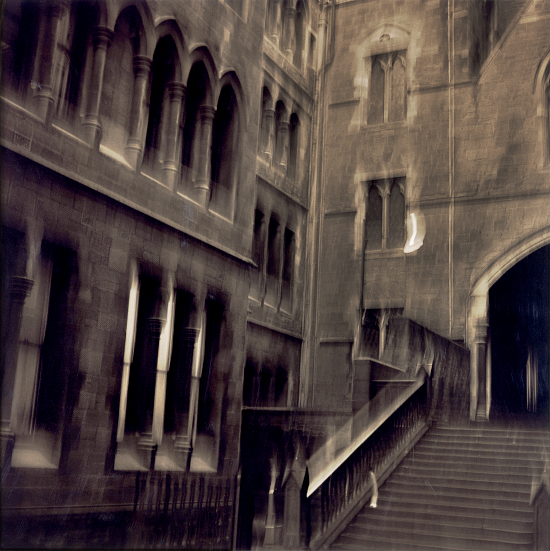Les Walkling, The Fragility of Goodness, Silver Gelatin Print, 890 x 890mm
“As long as I find someone beautiful – which is, in different degrees, a matter of love – I commit myself to its being worthwhile for that person to be – to whatever extent – part of my life and for me to be, in turn, part of their own life as well. Without that forward-looking element, and all its risks, attraction and love wither and disappear. And so, also, with art. A work we admire, a work we love, a work we find, in a word, beautiful sparks within us the same need to rush to converse with it, the same sense that it has more to offer, the same willingness to submit to it, the same desire to make it part of our life. I don’t want to understate the differences, but I also don’t want to lose sight of the similarities.” Nehamas, Alexander (2002) A Promise of Happiness: The Place of Beauty in a World of Art.” In The Tanner Lectures on Human Values 23: as quoted in Smith, Michael. 2017. “The ‘What’ and ‘Why’ of Love’s Reasons, p.156, in Love, Reason and Morality.
This is a ‘remember me’ moment; something to hang onto when there is nothing to embrace. Ink on paper miraculously displacing, indeed transcending the fragility of memory; of lives lived and lost. With just a little luck, this humble picture will survive, and carry something of me with you. When those past who we admire were doing what we now revere them for, they weren’t gazing backwards. They were not subsumed by distraction, but asking difficult questions. And though the world can’t provide peace, thanks, or serenity – by the same measure, the world can’t take any away. Only we can lose it through indifference, neglect and incompetence, and most certainly not through asking difficult questions. Despite this some of us, still collapse. For as our institutions decay, as we succumb to distraction and the incomplete, and our vigilance gets hijacked, so do we. Though in their transience are only fleeting moments, when one’s work is just too demanding and overwhelming to be entirely joyful is also when you realise the real pay-off is not what it promises, but the dedication and humility it ensures.
“There is no need for the western political artist, too often a disaster tourist, to ‘sail the seven seas’ looking for injustices to denounce. Inequality and exploitation saturate the ground on which we stand, they are in the grain of everyday life.” Burgin, Victor and Van Gelder, Hilde (2010) Art and politics: A reappraisal. A Prior Magazine 20)



{ 0 comments… add one now }